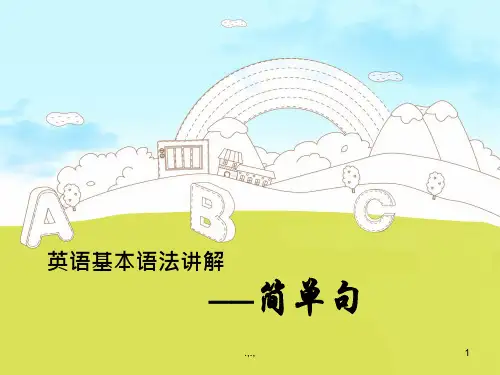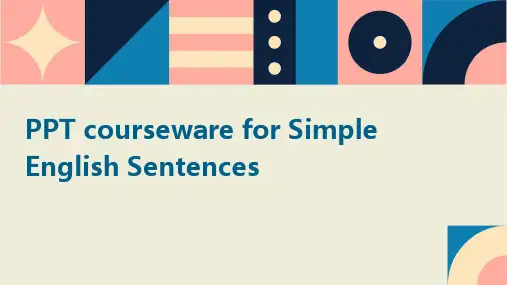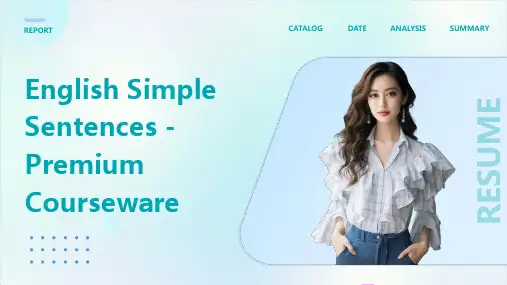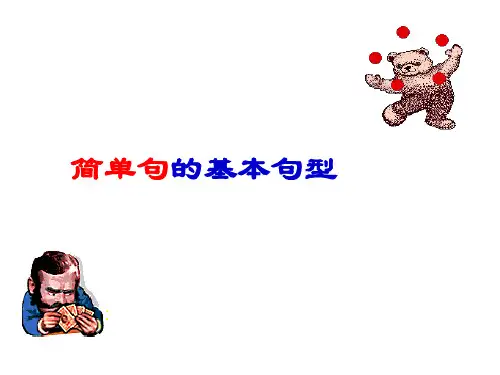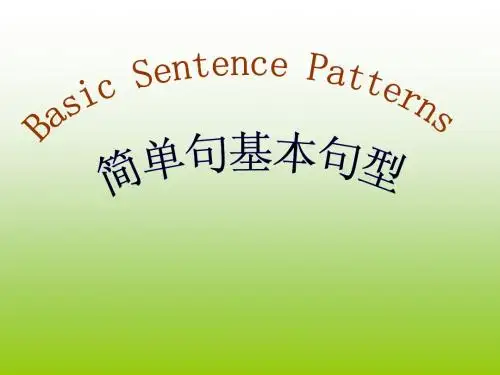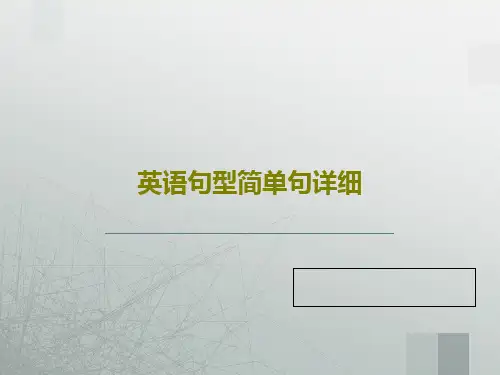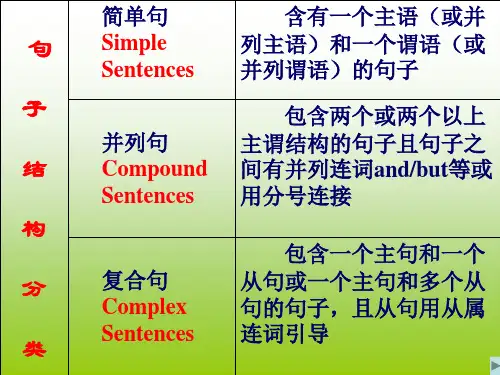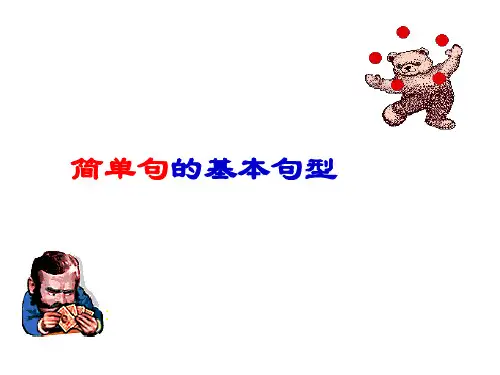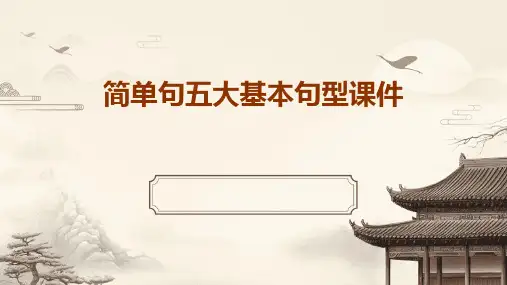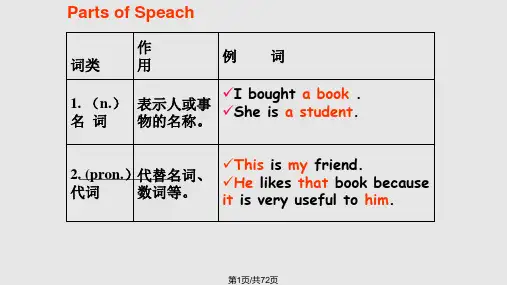1.她经常帮她妈妈。
She often helps
2. 我想要一杯茶。
I
want
O her mother. a cup of tea.
常见及物动词: admire羡慕, admit, affect影响,afford买得起, break打 破, defeat打败,destroy破坏, devote致力, enjoy, discover 发现, explain解释, forget, raise举起,饲养。 造句:
2、感官动词:feel, hear, listen to, look at, see, watch, notice, observe,+O+do/doing/done(加do时注 意其被动形式还原to), catch+sb+doing. 3、加宾语再加to do 作宾补的动词:force, get,
在句子中词类和词的位置也影响句子的句型和意思:
I found the book easily.
我很容易地找到了这本书。( S V O )
I found the book easy.
我觉得这本书很容易。 (S V O C)
各种词类及其在句子中的作用:
1. Nouns (n.) 名词:
-----主语(S),宾语(O),表语(P)等 2. Verbs (v.) 动词 ----谓语(V)
特点:句子的谓语动词都能表达完整的意思。
这类动词叫做不及物动词,后面可以
跟副词、介词短语、状语从句等,不
及物动词不直接加宾语,一般没被动。
e.g. His words works.
S
V
常见的不及物动词:
Agree, appear出现, arrive, come, go, dance, die, act, dream, exist存在, graduate毕业, happen, lie 躺,leave, last持续,live, look, listen, rise升起, run, sit, stand站,stay待,留,work, wait等待.
